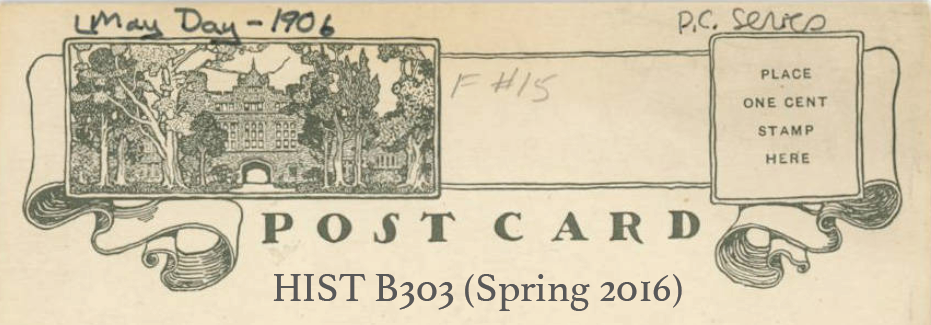Rodney G.S. Carter’s piece Of Things Said and Unsaid brought to mind a discussion I had had in an art history class this week about how our analysis of the past is shaped by our access to written materials. We were discussing the potential meanings behind a medieval painting of Mary, and how the image may have held a myriad of meanings but the only ones we could properly analyze were those that were supported by theological texts of the era. This is despite the fact that the vast majority of contemporaries were illiterate and more likely to learn their faith through images, not theological texts. The painting may have been read in many different ways, but the only one we know about is the one that comes from an institutional perspective. Although archives are made up of both words and images, I can’t help but feel that the strong preference for archiving the written word is already privileging certain people and types of material culture over others.
Carter ends his piece with a call to action for further archiving, especially on the part of marginalized groups. But I wonder if the problem runs deeper than that. Yes, literacy rates in much of the world are higher than they used to be. But we still can’t account for all the things left unsaid and unwritten. Even Springer in Radical Archives is looking at groups who created material that is in the right form to be archived using traditional methods. We can’t go back in time and ask medieval peasants what they thought of a painting in a church, but we also aren’t going out and collecting the thoughts of every person who sees a work of art now and putting it in an archive. It’s easy to look at newspaper archives and find art critics writing about exhibits, but much harder to find a record of someone who wandered in off the street, or someone who couldn’t afford to pay the admission price in the first place. Nobody asks what people without power or influence thought, so nobody writes it down, and consequently there’s nothing to archive. Our way of thinking about recording information still prioritizes certain types of material, especially things that have been written and published. Carter suggests that we “attempt to understand the contexts that gave rise to the silences” (230), but he uses the past tense as if we aren’t still creating silences and leaving blank spaces in the history we record today.
